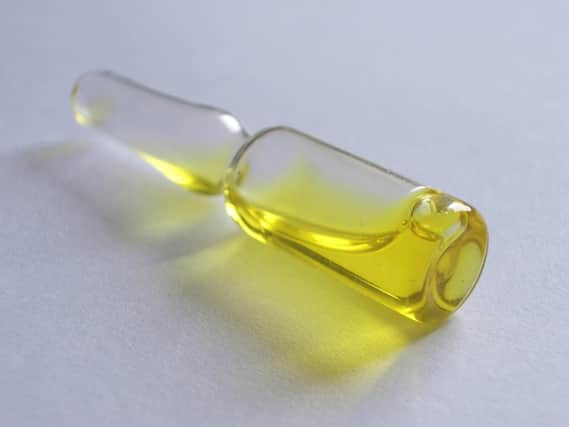Dr's Casebook: From stink bombs to potential solution to antibiotic resistance


Dr Keith Souter writes: They are really quite harmless, the quantities of the substance being so small that they can’t harm anyone.
Stink bombs have been used throughout history, because they produce an unpleasant smell that makes people want to depart from the vicinity. Interestingly, Leonardo da Vinci invented a type that could be fired with an arrow.
Advertisement
Hide AdAdvertisement
Hide AdThe unpleasantness of the bad egg odour of hydrogen sulphide made people intuitively feel it was bad for health. Indeed, studies as long ago as 1803 demonstrated that the gas was injurious to humans and animals. Naturally enough, since it was associated with sewers, septic tanks and as weapons of war during the Great War the emphasis of scientific research was on its toxicology.
It is known that when life began on earth about 3.8 billion years ago, hydrogen sulphide was abundant and the atmosphere contained little oxygen. Primitive bacteria utilised sulphur and broke it down to release hydrogen sulphide. Then 2.5 billion years ago the great oxidation event occurred and lifeforms adapted to oxygen. Yet many bacteria still do produce hydrogen sulphide.
There has now been a steady increase in the amount of research on hydrogen sulphide away from toxicology and towards the physiology of micro-organisms including various hydrogen sulphide producing bacteria. Current research is looking at this very seriously, since it may have a part to play in reducing resistance of some bacteria to antibiotics.
Antibiotic resistance is a huge problem for humanity. The WHO has predicted that the deaths attributable to infection with bacteria resistant to antibiotics could rise to ten million per year by 2050.
Advertisement
Hide AdAdvertisement
Hide AdIt seems that the production of hydrogen sulphide produced by certain bacteria acts as a shield against antibiotics. Several research studies now suggest that exposing bacteria that do not produce it causes them to become responsive to a variety of antibiotics. That is, it counters their antibiotic resistance.
This research is on-going as it offers great hope. The bad smell of the stink bomb practical joke may turn out to be a powerful weapon against antibiotic resistance.